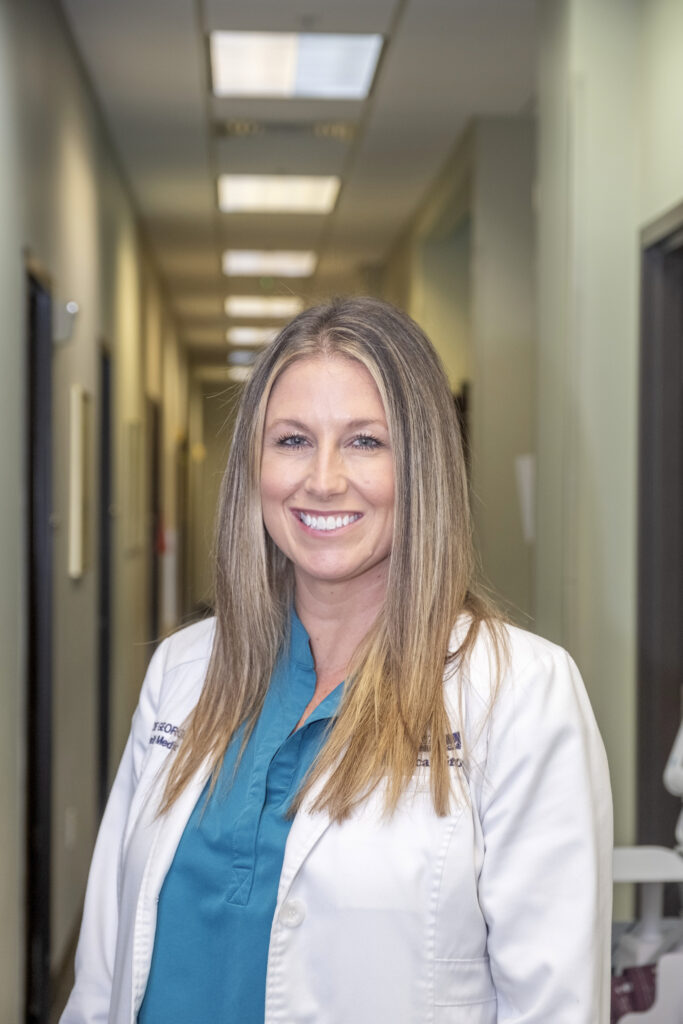“Your body is truly a machine,” says Dr. Jayde George, who practices Family Medicine at Health First’s Holmes Regional Medical Center. “And like that old lawn mower that sits in the garage and is cranky when you finally take it out to use it, if you haven’t maintained and taken care of it, you’ll feel the effects.”
If you sense that it takes longer for your body to recover as you age, that’s the reality of what time does to our bodies.
The ability to bounce back from health stress is called “biological resilience” by researchers.
Evidence suggests that it declines with age, driven by biological and other factors. The National Institutes of Health says that those other factors may include genetics, temperament, cognitive abilities, quality of experiences, environmental factors, supportive relationships and adaptive skill-building.
“Biological resilience is real,” says Dr. George, “but our entire body starts to slow down as we age. Once we reach maturity and all our cells have attained maximum growth, it’s important for us to maintain them to the best of our ability.”
Scientists from the Stanford University School of Medicine have discovered that humans undergo two major changes in their molecules and microorganisms at around ages 44 and 60.
Researchers say these changes can potentially have a powerful impact on a person’s health, including cardiovascular health. They also found that the most noteworthy age-related molecule and microbe changes were linked to potential health problems.
For example, with people in their 40s, they found significant changes in the number of molecules related to alcohol, caffeine and lipid metabolism, as well as cardiovascular disease and skin and muscle.
At the age of 60, the biggest molecule changes were related to cardiovascular disease, immune regulation, kidney function, carbohydrate and caffeine metabolism, and skin and muscle.
“Our blood cells continually live and die, and we have to make new ones,” says Dr. George. “As new cells are made, there’s always a chance for error. Over time, cells aren’t made as well as they previously were. It happens with normal aging.
“Everyone should be working towards the goal of maintaining normal function as much as possible,” Dr. George advises. “Nobody can put you back together as well as you were originally put together.”
The Center for Mental Health and Aging says that to build biological resilience in seniors, focus on maintaining strong social connections, engage in regular physical activity, cultivate a positive mindset, develop effective coping mechanisms, embrace gratitude practices, and stay optimistic about life changes, all while actively participating in the community when possible.
Dr. George adds maintaining a healthy diet, keeping moving, getting enough sleep, and eliminating exposure to stress are important as well. “Eat with intention,” she adds. “We need progressively fewer calories as we age, so be conscious of what you eat.
“Stress elimination or control isn’t always easy,” she says. “Many people in this age group are members of ‘the sandwich generation,’ caring for their parents, actively involved in the lives of their children, and perhaps still working.
“They need to make self-care a priority. Resources like Health First’s Center for Family Care Givers can help you figure out how to do that.”
The older we get, the more medications we tend to take. Approximately 1 in 5 adults aged 40 to 79 take at least five prescription drugs, according to Centers for Disease Control and Prevention data.
“Medications bring their own set of side effects,” explains Dr. George. “Always talk to your doctor about them. Often, they can come up with a workaround if they know what you’re experiencing.”
Harvard Medical School’s newsletter explains that age-related muscle loss, called sarcopenia, is a natural part of aging. After age 30, you begin to lose as much as three percent per decade. Less muscle means greater weakness and less mobility, both of which may increase your risk of falls and fractures.
The newsletter goes on to say that in addition to regular weight-bearing exercise, your diet also plays a role in building muscle mass. Protein is the king of muscle food.
Additionally, hormonal changes are at play, including the gradual decline in sex hormones and growth hormones for men, and more dramatically for women during perimenopause and menopause, says Elissa Epel, who studies aging and stress in the department of psychiatry and behavioral sciences at the University of California, San Francisco.
The National Council on Aging (NCOA) states that up to 40 percent of seniors may be chronically underhydrated. There’s a variety of reasons for that. Appetite and thirst tend to diminish with age. Older adults experience body composition changes over time that leave them with less water in their bodies to start with. Seniors are more likely to take medications that increase dehydration risk.
NCOA adds that water is essential to almost all bodily functions, from lubricating our joints to pumping blood to our heart.
Dr. George concludes, “We don’t always act on things while we’re younger. But the sooner you start to live an active and healthy lifestyle the more you’ll reap the benefits later in life.”
Dr. Jayde George, D.O., has a B.S. in biology from the University of South Florida and a D.O. from Nova Southeastern University. She completed her residency in the Osteopathic Family Medicine Residency program at Florida Hospital East, Orlando. She is board-certified by the American Osteopathic Board of Family Physicians, and is a member of the American Osteopathic Association, the Florida Osteopathic Medical Association, and the American Academy of Family Physicians. Dr. George is medical director of virtual health for Health First Medical Group and maintains a family practice at 2222 S. Harbor City Blvd., Suite 610, Melbourne. Call 321-312-3455 for an appointment.

